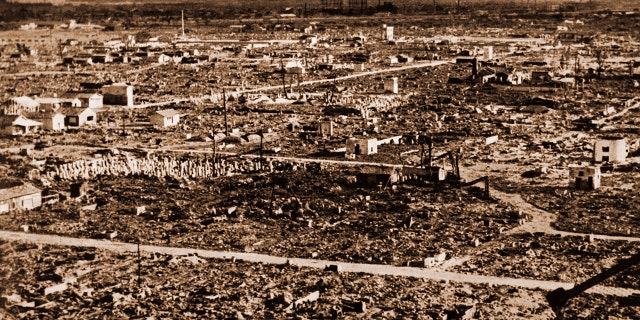The bombing of Hiroshima on August 6, 1945, marks a pivotal moment in human history, forever altering the trajectory of warfare and global relations. The immediate and long-term effects of the atomic bomb not only devastated the city of Hiroshima but also invoked profound theological and moral questions, particularly in Christian thought. This article seeks to explore the multifaceted effects of the atomic bomb on Hiroshima through a Christian lens, focusing on the destruction wrought, the ensuing legacy, and the reflection on humanity’s moral compass in light of such events.
Immediately following the detonation of the atomic bomb, Hiroshima faced an unparalleled catastrophe. The explosion unleashed tremendous heat—reaching temperatures of up to 4,000 degrees Fahrenheit—obliterating buildings and incinerating human life in mere moments. This phenomenon of destruction manifested in a broad spectrum: homes, schools, hospitals—once vibrant with life—were reduced to ruins. Visual imagery from that day reveals an irrefutable truth: the landscape of Hiroshima was transformed into a wasteland where nothing seemed to withstand the ferocity of the blast.
The human toll was staggering. Estimates suggest that around 140,000 people perished by the end of 1945, many instantly vaporized by the blast, while others succumbed to subsequent radiation sickness. Such statistics prompt a severe introspection within Christian frameworks. The sheer scale of death raises unavoidable ethical inquiries—where was God amidst this horror? For many believers, the devastation challenges traditional ideas of divine providence and the presence of good amid such overwhelming evil.
The biblical narrative offers various insights into suffering and human frailty. Central to Christianity is the recognition of humanity’s fallen nature and the resultant suffering that pervades the world. However, the intensity of destruction in Hiroshima forces a reevaluation of these tenets against the backdrop of modern warfare and technological advancements. It necessitates an examination of whether the act of utilizing atomic weaponry represents a failure of humanity to act justly, reflecting perhaps a betrayal of the commandment to love one’s neighbor.
When grappling with the legacy of Hiroshima, one must recognize the prolonged physical and psychological aftermath endured by survivors, often termed hibakusha. In addition to the immediate loss of life, many survivors carried the invisible scars of radiation exposure—long-term illnesses such as cancer, chronic fatigue, and psychological trauma haunted the living for decades. The Christian community, called to extend compassion and support, has played a significant role in advocating for the needs of these survivors. Their plight resonates deeply with the Christian mandate of loving one’s neighbor, illustrating an authentic application of faith in facing the consequences of one of humanity’s most harrowing events.
The concept of reconciliation is also paramount. Hiroshima stands as a poignant reminder of the fragility of peace and the monumental responsibilities that accompany power. In the aftermath of the atomic bomb, the Christian perspective emphasizes the need for a redemptive approach to international relations. Rather than succumbing to cycles of vengeance and conflict, believers are encouraged to champion peacebuilding efforts, engaging in dialogues that underscore forgiveness, healing, and restoration amidst global divisions.
Moreover, the moral implications of nuclear warfare compel an ethical discourse that transcends cultural boundaries. In Christian ethics, one may reference the concept of stewardship, which includes the careful management of creation and the commitment to promote life rather than destruction. Hiroshima serves as a cautionary tale regarding the consequences of prioritizing military might over humanity, inviting believers to reflect on how society can harness knowledge and technology responsibly.
As discussions about modern warfare and nuclear arsenals continue, the events at Hiroshima trigger essential conversations about the sanctity of human life and the ethical ramifications of weaponry. The Christian call—to uphold the dignity of every individual—remains relevant as nations grapple with the potential catastrophic implications of their choices. The questions of security and peace are intertwined with a fundamental respect for the sacredness of every human life, compelling a reexamination of war’s justification.
Finally, the legacy of Hiroshima is not solely one of devastation; it is a testament to resilience and recovery. As Hiroshima rebuilt, transformed into a symbol of peace, the city has become a center for anti-nuclear advocacy. The Christian community has strongly engaged in these movements, underscoring the call to promote peace and prevent the repeat of such calamities. They rally for a nuclear-free future, aligning their mission with the core of the Gospel, which heralds life, not death.
In conclusion, the effects of the atomic bomb on Hiroshima extend beyond mere physical destruction; they reverberate through the moral and ethical fabric of society. For Christians, the challenge is to confront these realities with a spirit of compassion, reconciliation, and commitment to peace. The lessons gleaned from Hiroshima compel believers to seek a profound understanding of their role in a world fraught with conflict and to act as ambassadors of hope and healing in the face of profound suffering and loss.



